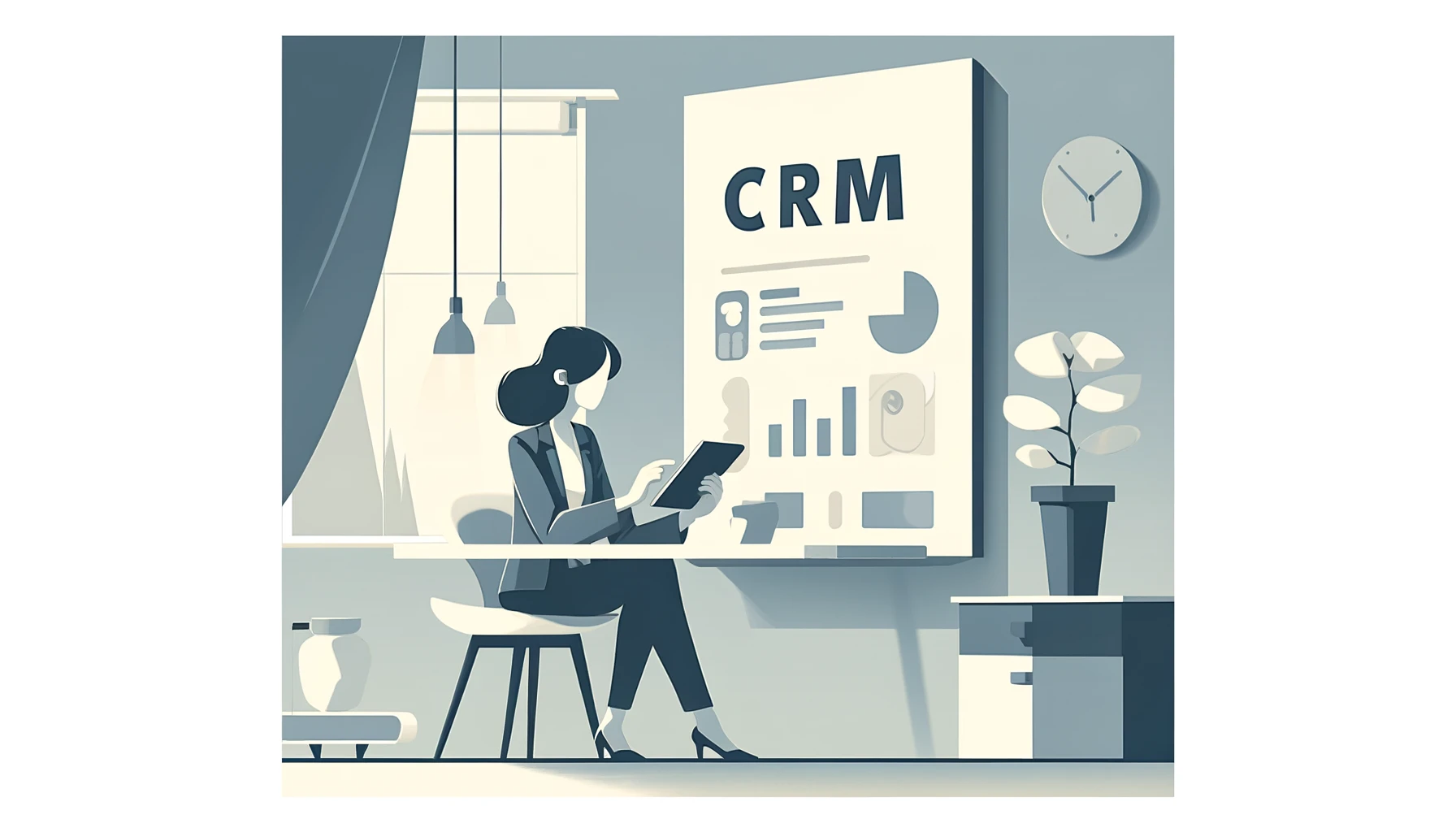CRM for Small Business: Streamline Your Sales Process

Discover top CRM solutions tailored for small business efficiency and growth. Find your perfect match with ease.
Maximizing Sales Efficiency with Tailored CRM Solutions
Maximizing sales efficiency is a cornerstone for the success of any small business. A tailored CRM solution can be a game-changer, facilitating smoother operations and ensuring that every customer interaction counts. By adopting a CRM designed for small businesses, companies can nurture leads effectively, automate routine tasks, and keep track of sales opportunities with precision.
When you integrate a CRM into your business, you’re not just organizing contact information. You’re also gaining valuable insights into customer preferences and behaviors, which can drive your sales strategy. For instance, tracking customer interactions and purchase histories allows for more personalized outreach, which can significantly boost conversion rates.
Moreover, a robust CRM system can improve team collaboration. With shared access to customer data, your sales, marketing, and customer service teams can work together seamlessly, providing a unified approach to customer management. This synergy not only enhances productivity but also ensures a consistent customer experience.
To give you a clearer picture of the benefits, let’s look at some tangible improvements you might see after implementing a CRM solution:
| Metric | Before Implementation | After Implementation | Improvement |
|---|---|---|---|
| Lead Conversion Rate (%) | 15 |
25 |
+66.7% |
| Customer Retention Rate (%) | 75 |
85 |
+13.3% |
| Sales Cycle Length (days) | 30 |
22 |
-26.7% |
| Customer Satisfaction Score (out of 10) | 7 |
9 |
+28.6% |
Selecting the right CRM is crucial, and with options like Zoho and Odoo on the market, it’s important to compare features directly:
| Feature | Ozma | Zoho | Odoo |
|---|---|---|---|
| Customizable Sales Pipelines | ✓ | ✓ | ✓ |
| Email Marketing Integration | ✓ | ✓ | x |
| Advanced Reporting and Dashboards | ✓ | x | ✓ |
| Mobile Access for Sales Teams | ✓ | ✓ | ✓ |
| Automated Workflow Creation | ✓ | ✓ | x |
Remember, the goal is to choose a CRM that aligns with your business needs and scales as you grow. With the right system in place, you’ll be well on your way to maximizing sales efficiency and driving your business forward.

By focusing on these aspects, you’re setting your small business up for success. A tailored CRM for small business not only streamlines your sales process but also provides the tools for sustainable growth and customer satisfaction. Choose wisely, and watch your business thrive.
Decoding the Advantages: CRM Impact on Small Enterprises
The digital age has ushered in a new era of customer relationship management, especially for small enterprises that once relied solely on manual processes and intuition. A CRM system is not just a technology but a strategic tool that can transform the way you connect with customers and streamline your business operations. Let’s delve into the core benefits that a CRM brings to small businesses.
Firstly, customer data management becomes a breeze. With a CRM, you can keep all your customer information in one place, easily accessible to your team. This means no more sifting through spreadsheets or old emails to find the details you need. You can quickly pull up a customer’s history and personalize your interactions, making them feel valued and understood.
Secondly, sales forecasting and analytics are vital for any business looking to grow. A CRM can provide detailed reports that help you understand sales trends, forecast future sales, and make data-driven decisions. By analyzing this data, you can identify which products are selling well and which ones require a different strategy.
Moreover, automation of routine tasks is another significant advantage. Small businesses often operate with limited resources, and a CRM can help you do more with less. By automating tasks like follow-ups, scheduling, and email marketing, your team can focus on more critical aspects of the business, like closing deals and improving customer service.
To illustrate the impact of CRM on small businesses, consider the following improvements:
| Benefits of CRM for Small Business | Impact on Operations |
|---|---|
| Centralized Customer Information | Reduced time on data entry and improved customer service |
| Enhanced Sales Forecasting | Better resource allocation and targeted sales strategies |
| Task Automation | Increased efficiency and productivity for the team |

Adopting a CRM can lead to a significant uptick in customer satisfaction. When your business responds quickly and effectively to customer needs, you build trust and loyalty. This, in turn, can lead to increased sales and a stronger brand reputation.
In essence, the right CRM for small business acts as the nervous system of your enterprise, coordinating various functions and ensuring they work in harmony towards common goals. It’s an investment that pays dividends by creating a more organized, efficient, and customer-centric business.
As you continue to explore the potential of CRM for your small enterprise, remember that it’s not just about the software; it’s about how you leverage it to create lasting relationships and drive sustainable growth. With the right CRM, your small business is well-equipped to compete in the big leagues.
A Beginner’s Guide to Implementing Customer Management Systems
Embarking on the journey to implement a CRM system can seem daunting for small business owners, but it’s a critical step towards streamlining your operations and setting a foundation for growth. Here’s a straightforward guide to help you navigate the process of choosing and implementing a customer management system that suits your company’s unique needs.
Step 1: Assessing Your Business Requirements
Begin by evaluating your business processes and identifying the areas that need improvement. Do you need better lead tracking, sales forecasting, or customer service support? Understanding these requirements will help you pinpoint the CRM features that are most relevant to your business.
Step 2: Research and Shortlisting
Next, research the various CRM options available. Look for systems that offer the specific functionalities you need, are user-friendly, and fit within your budget. Create a shortlist of potential CRMs that align with your small business objectives.
Step 3: Taking a Test Drive
Most CRM providers offer free trials or demos. Take advantage of these to get a feel for the software’s interface and capabilities. It’s a practical way to see if the system is a good fit for your team’s workflow.
Step 4: Planning for Integration
Consider how the CRM will integrate with your existing tools. Seamless integration is key for a unified system that doesn’t disrupt your current operations. Check for compatibility with your email platform, accounting software, and any other tools your small business relies on.
Step 5: Training and Onboarding
Once you’ve selected a CRM, plan for a comprehensive training program. Ensure that your team understands how to use the system effectively. Good training leads to better adoption and maximizes the CRM’s value.
Step 6: Go Live and Evaluate
Implement the CRM, go live, and monitor its impact on your business. Collect feedback from your team and evaluate the system’s performance against your initial objectives. Be prepared to make adjustments as needed.
Step 7: Continuous Improvement
Finally, view CRM implementation as an ongoing process. As your business evolves, so too will your CRM needs. Regularly review and update your CRM strategy to ensure it continues to serve your growing business well.
Here’s a simple table to summarize these steps:
| Step | Description |
|---|---|
| Assess Your Needs | Identify what you want to improve in your business. |
| Research and Shortlist | Explore CRM options and create a list of potential fits. |
| Test Drive | Try out demos or free trials to evaluate usability. |
| Plan for Integration | Ensure the CRM works with your existing tools. |
| Training and Onboarding | Educate your team to ensure smooth adoption. |
| Go Live and Evaluate | Implement the CRM and monitor its effectiveness. |
| Continuous Improvement | Regularly update your CRM strategy. |

By following these steps, you’ll be able to implement a CRM system that not only fits your small business needs but also has the potential to transform your customer management and sales processes. The right CRM can lead to improved efficiency, enhanced customer relationships, and ultimately, business growth.
Case Studies: Small Business Success with CRM Integration
The integration of a CRM system can be a major turning point for a small business. It’s the catalyst for improved customer relationships and streamlined operations. To truly appreciate the value of a CRM for small business, let’s explore real-world success stories.
One such story is of a boutique clothing retailer that adopted a CRM and saw a 40% increase in repeat customers within six months. By using CRM data to personalize communication and offers, they could connect with their customers on a more meaningful level.
Another inspiring case is a small tech startup that utilized CRM analytics to refine its marketing strategy, resulting in a 30% rise in qualified leads and a shorter sales cycle. The CRM’s lead scoring system helped prioritize prospects, allowing for more focused and successful sales efforts.
These examples highlight the transformative power of CRM in various business contexts. By choosing a CRM that aligns with their unique goals, small businesses can experience significant improvements in customer engagement and operational efficiency.
| Business Type | CRM Impact | Performance Increase |
|---|---|---|
| Boutique Retailer | Enhanced personalization | +40% repeat customers |
| Tech Startup | Refined marketing strategy | +30% qualified leads |

These case studies serve as a testament to the strategic advantage that a CRM system can provide. Whether it’s through personalizing customer interactions, optimizing marketing campaigns, or streamlining sales processes, a CRM for small business is an invaluable tool for growth and success.
Embrace a CRM and watch your small business soar to new heights with improved customer satisfaction and a solid foundation for scalable growth.
Simplifying Contact Management for Enhanced Customer Relations
Efficient contact management is the heartbeat of a small business, and a CRM system is the ideal tool to simplify this crucial aspect. With a CRM, you can effortlessly manage customer information, track interactions, and provide personalized service that builds strong relationships.
Imagine having all your customer details, from contact information to purchase history, at your fingertips. This centralized data repository allows for quick access, accurate updates, and seamless collaborations among team members. It eliminates the risk of data silos and ensures that every team member is on the same page when interacting with customers.
A CRM for small business also enables you to segment your customers based on various criteria, such as demographics, purchase behavior, or interaction history. This segmentation leads to more targeted and effective marketing campaigns, offering customers the deals and information most relevant to them.
To further enhance customer relations, many CRMs now offer advanced communication tools. These can range from integrated email systems to social media management, enabling you to reach out to your customers through their preferred channels. By engaging with customers where they are most active, you increase the chances of your message resonating and driving loyalty.
Here’s a simple comparison chart showcasing how a CRM can revolutionize your contact management:
| Aspect of Contact Management | Without CRM | With CRM |
|---|---|---|
| Data Accessibility | Limited | Comprehensive |
| Customer Segmentation | Manual | Automated |
| Communication Tools | Disjointed | Integrated |
| Team Collaboration | Challenging | Streamlined |

In conclusion, by simplifying contact management with a CRM, you’re not just organizing data; you’re enhancing the customer experience and setting the stage for lasting relationships. The right CRM for small business can transform how you manage contacts, making every interaction count and propelling your business towards greater success.
FAQs
What is CRM for small business?
CRM for small business refers to customer relationship management systems designed to meet the unique needs of smaller enterprises, helping to manage contacts, sales, and customer service.
How can CRM benefit a small business?
CRM solutions can benefit small businesses by streamlining sales processes, improving customer interactions, and enabling better data organization and analysis for informed decision-making.
Are there affordable CRM options for small businesses?
Yes, there are many affordable CRM options available that cater to the budget and specific requirements of small businesses without compromising on essential features.
Can CRM systems integrate with other tools used by small businesses?
Many CRM systems offer integration capabilities with other business tools such as email, accounting software, and marketing platforms to create a cohesive workflow.
How do I choose the right CRM for my small business?
When choosing a CRM for your small business, consider factors like budget, scalability, ease of use, feature set, and integration possibilities with your current toolset.
Read more about low-code platform ozma.io
CRM for Beginners: Easy to Start!
CRM for Photographers: More Clients and Efficiency





